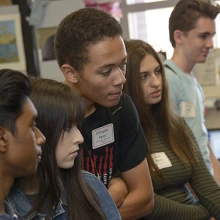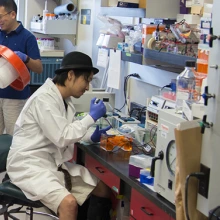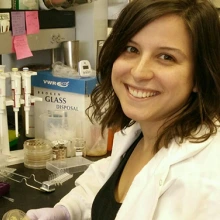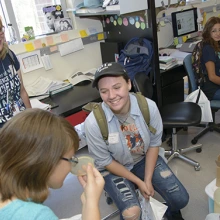Molecular and Cellular Biology focuses on the study of the primary structures of life, specifically, how biological molecules function at the level of the cell and how their function is controlled through genetics. Our department aims for students to develop a deep understanding of current ideas and problems in molecular and cellular biology. The MCB department at UA represents a diverse group of faculty member research interests including cancer, neurobiology, heart development and disease, plant development, evolutionary biology, cell signaling, gene expression, RNA biology, genetic networks and systems biology, genome stability, and origin of life/astrobiology. MCB students at all levels have the opportunity to apprentice in active research laboratories.
- The MCB undergraduate degree provides students the strong interdisciplinary foundation in genetics, development, and biotechnology to pursue careers in medicine and other health care fields, pharmaceutical and biology research, and education. The MCB major meets the requirements for most medical schools.
- The MCB Graduate Programs offer PhD degrees in Molecular and Cellular Biology and Molecular and Cellular Biology with an emphasis in Science Education. Students can pursue Master’s Degrees in MCB or Applied Bioscience. MCB undergraduates can complete an accelerated Master's Degree with one year of additional study.
- High school students whose schools are part of the BIOTECH Project can take MCB 101/102 for college credit.

Love biology? Want to delve deeper into questions about nature at the molecular and cellular level and learn about development of new human disease therapies? Explore how a degree in Molecular and Cellular Biology at UA can help you achieve your goals.

Learn through innovative teaching methods and hands-on research experiences. Get the strong foundation in genetics, development, and biotechnology to pursue a career in medicine, pharmaceutical and biology research, or education.

Get first-class preparation for a research career in molecular and cellular biology, experimental and computational biology or biomedical sciences in a supportive environment with a dedicated, interdisciplinary faculty.

Learn more about MCB scholarships and awards for undergraduate and graduate students.

Learn about continuing education courses and our outreach and enrichment programs for the classroom.

